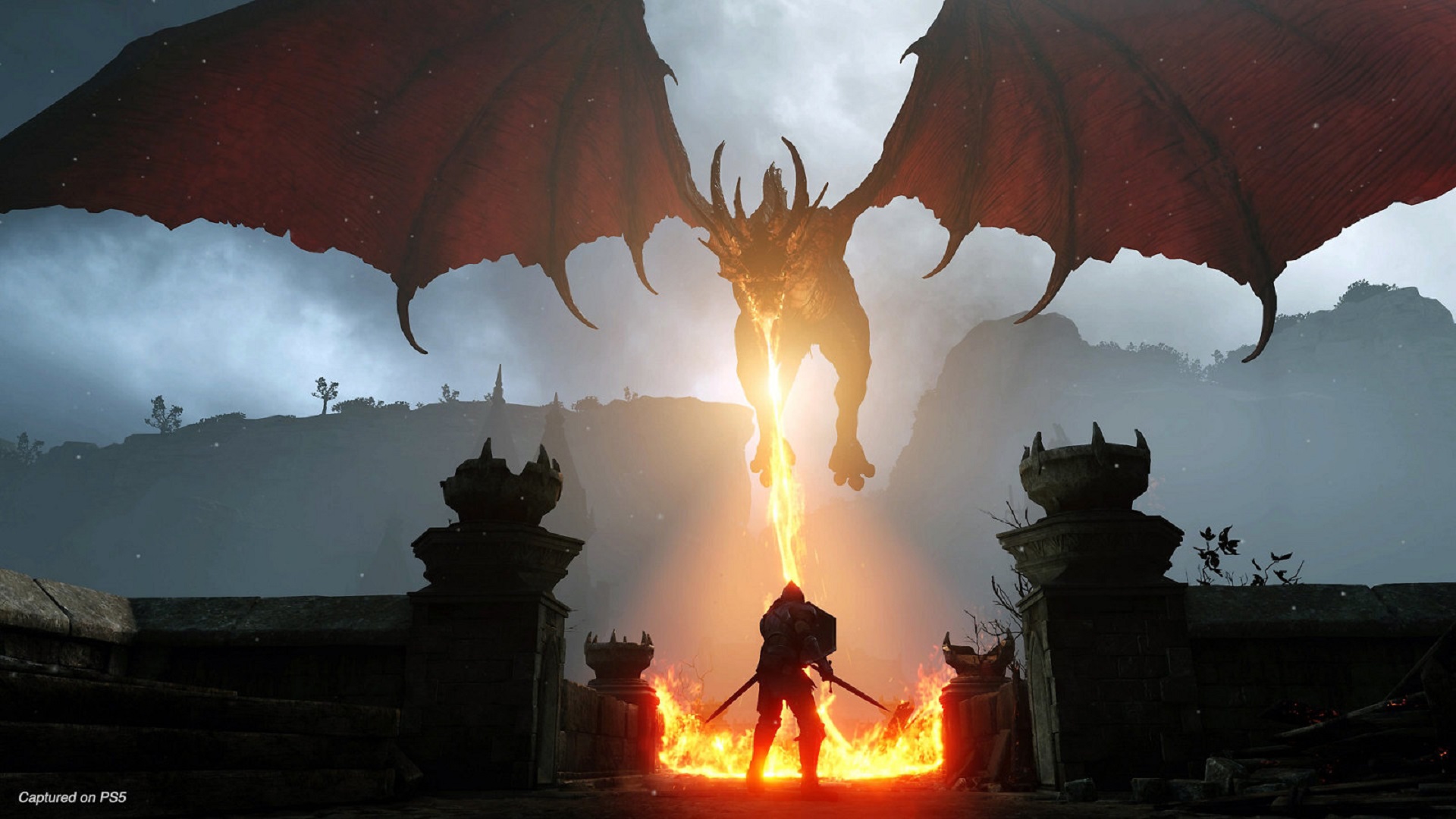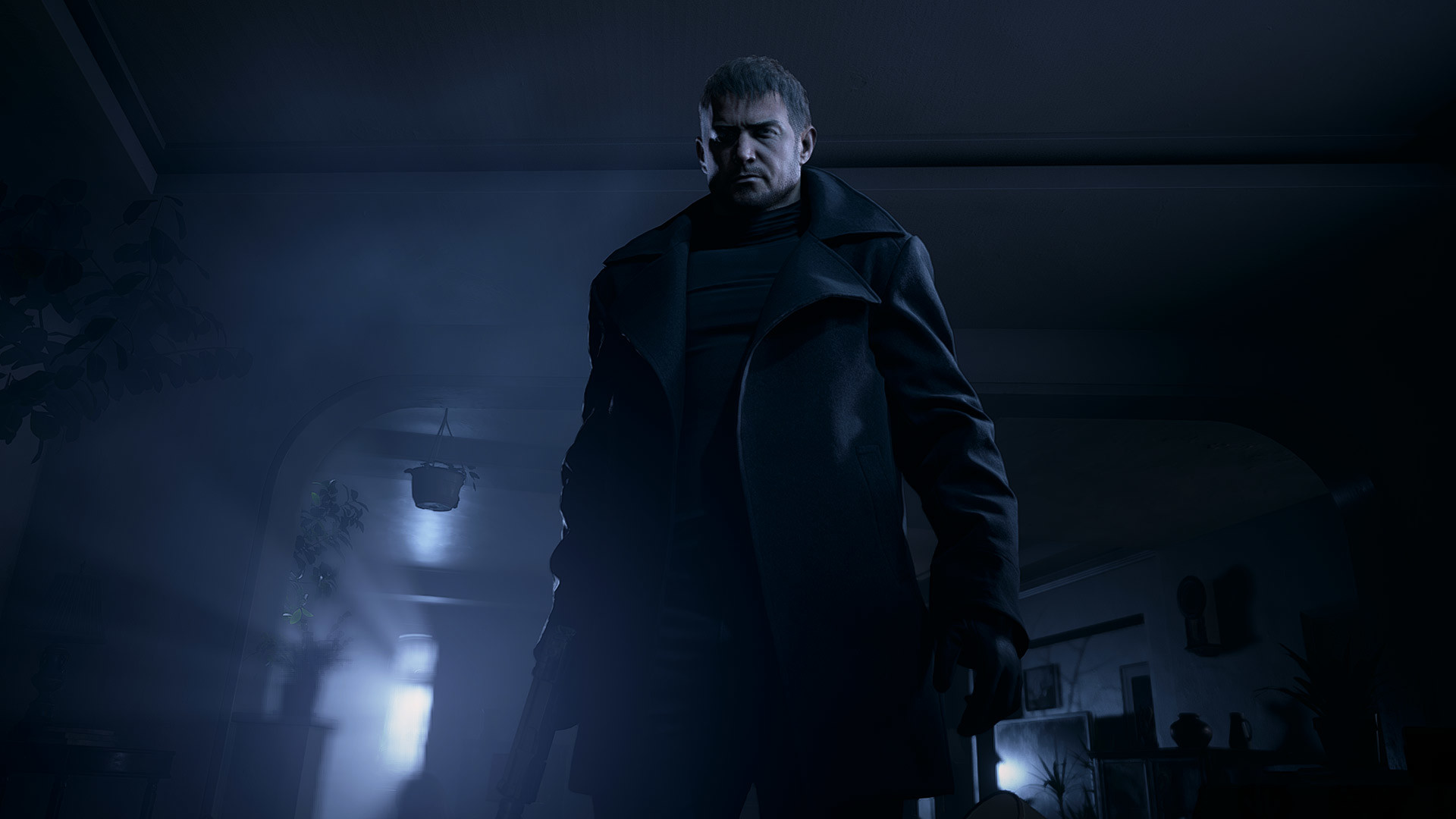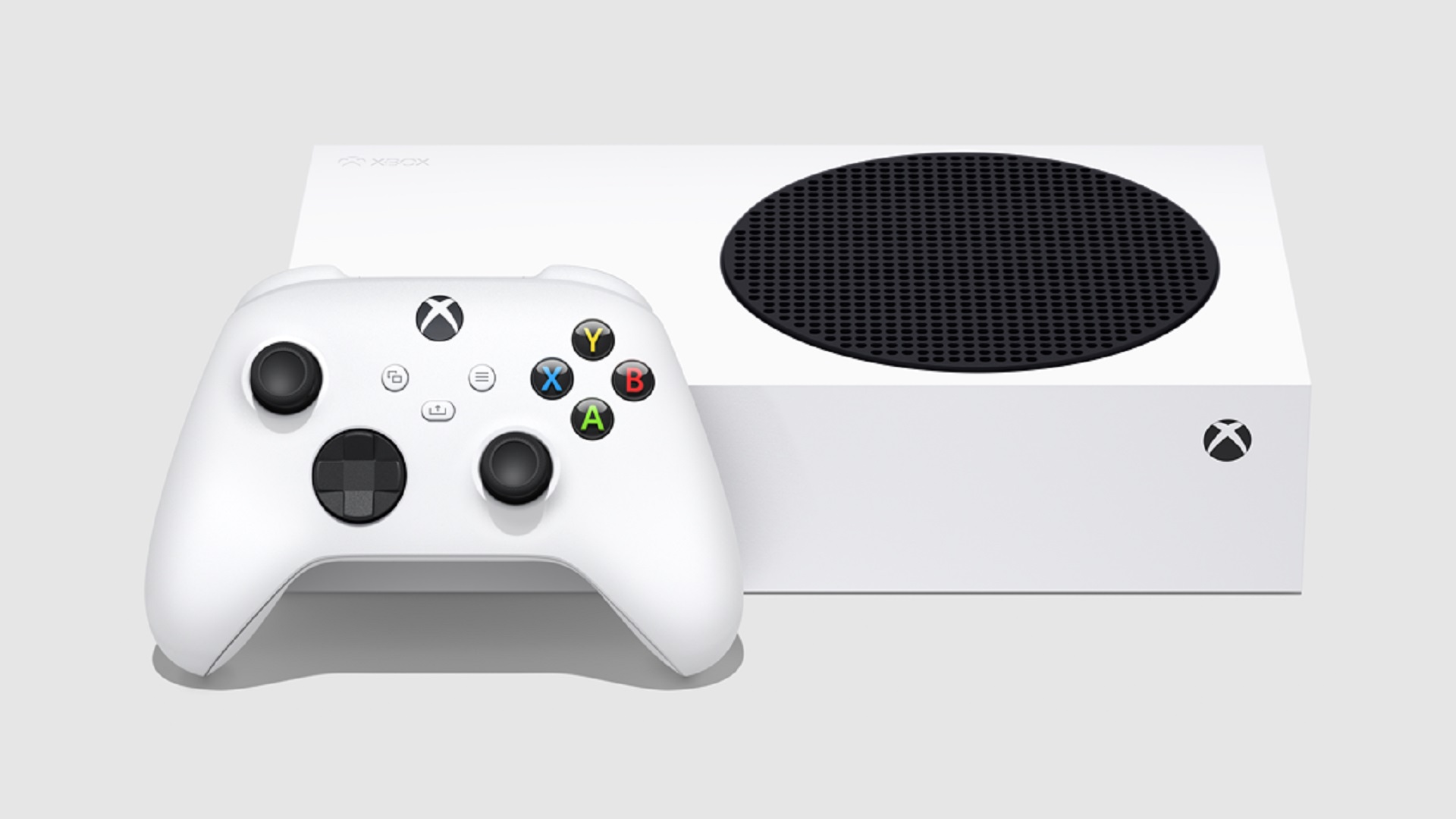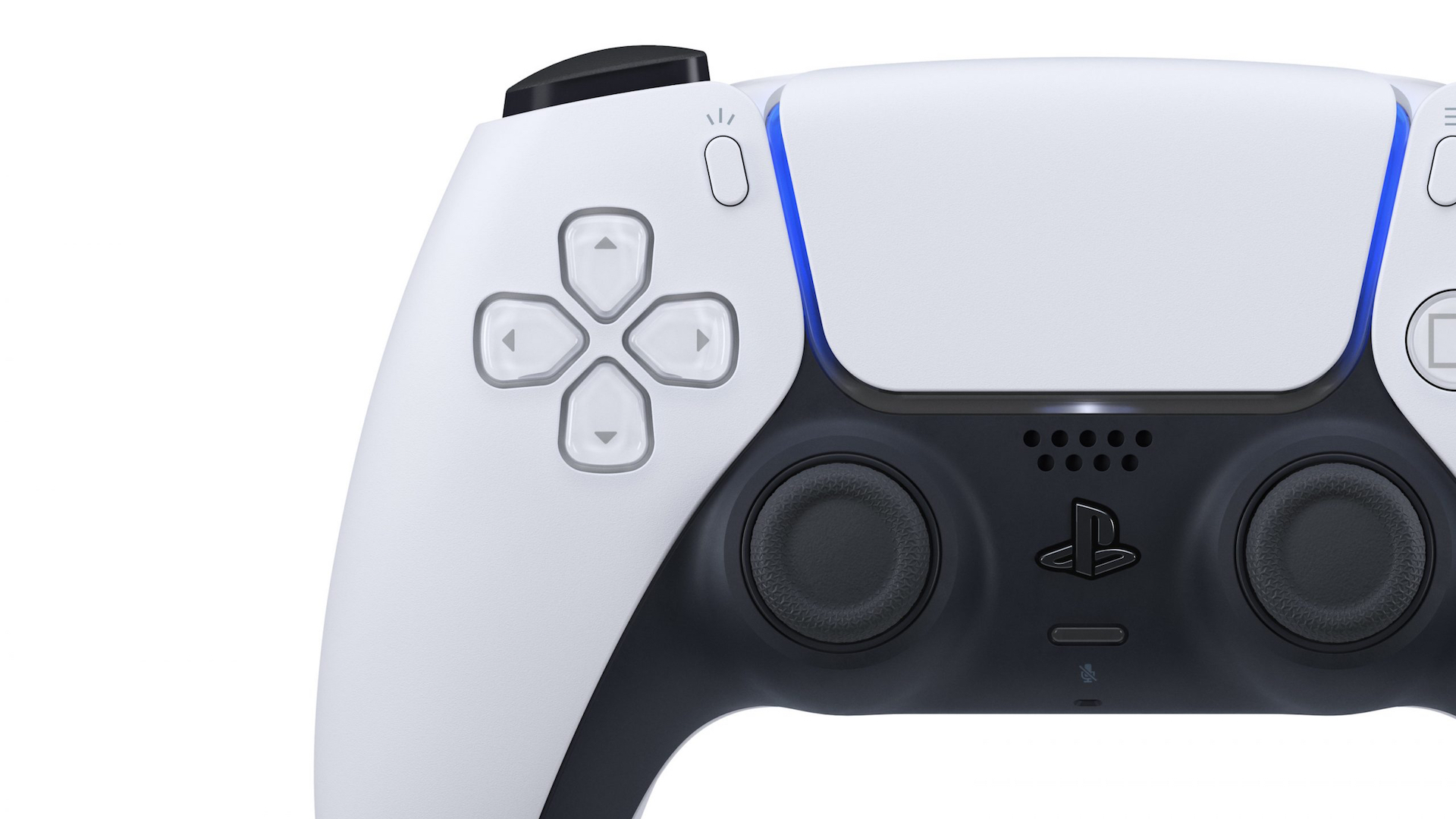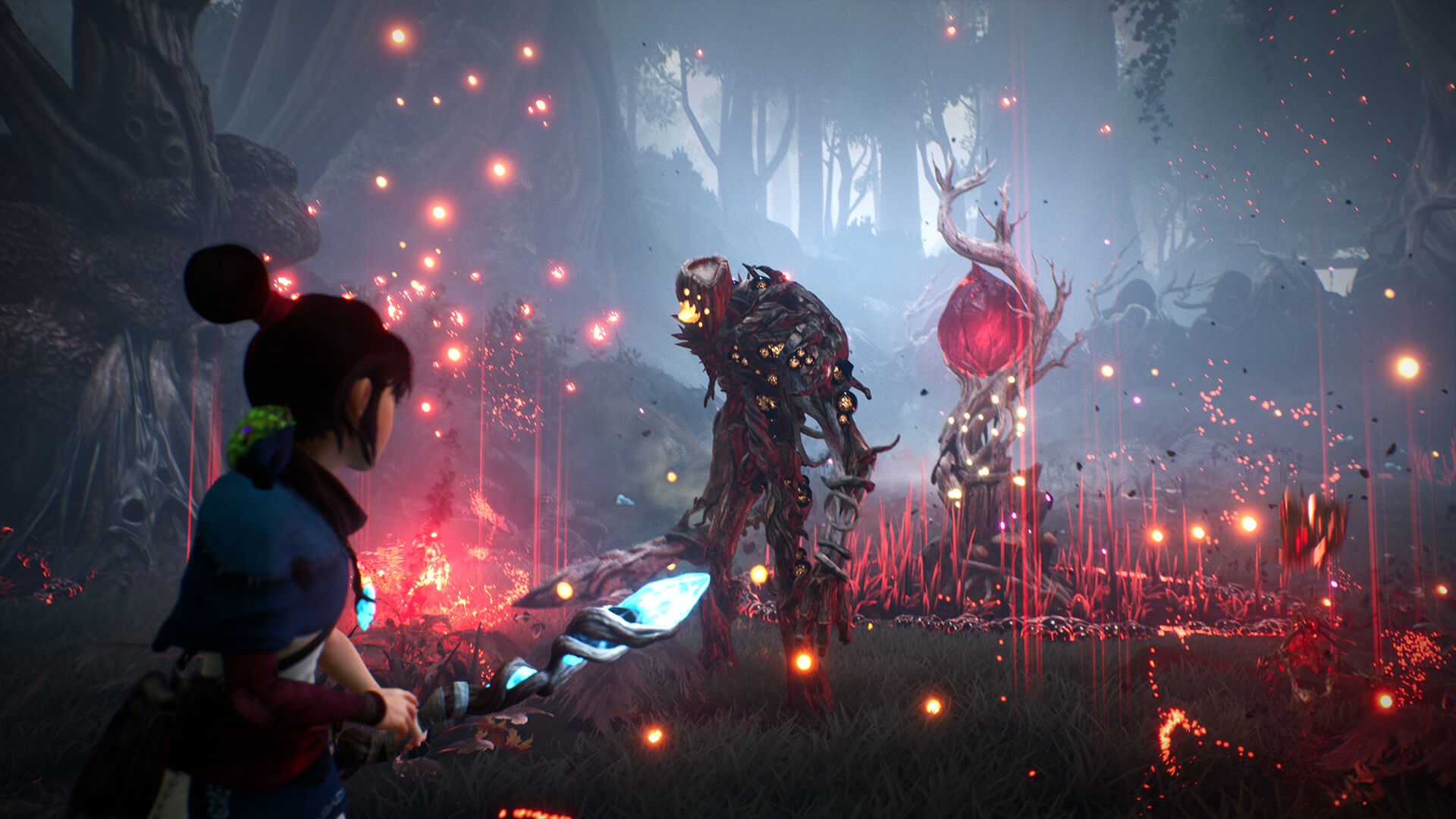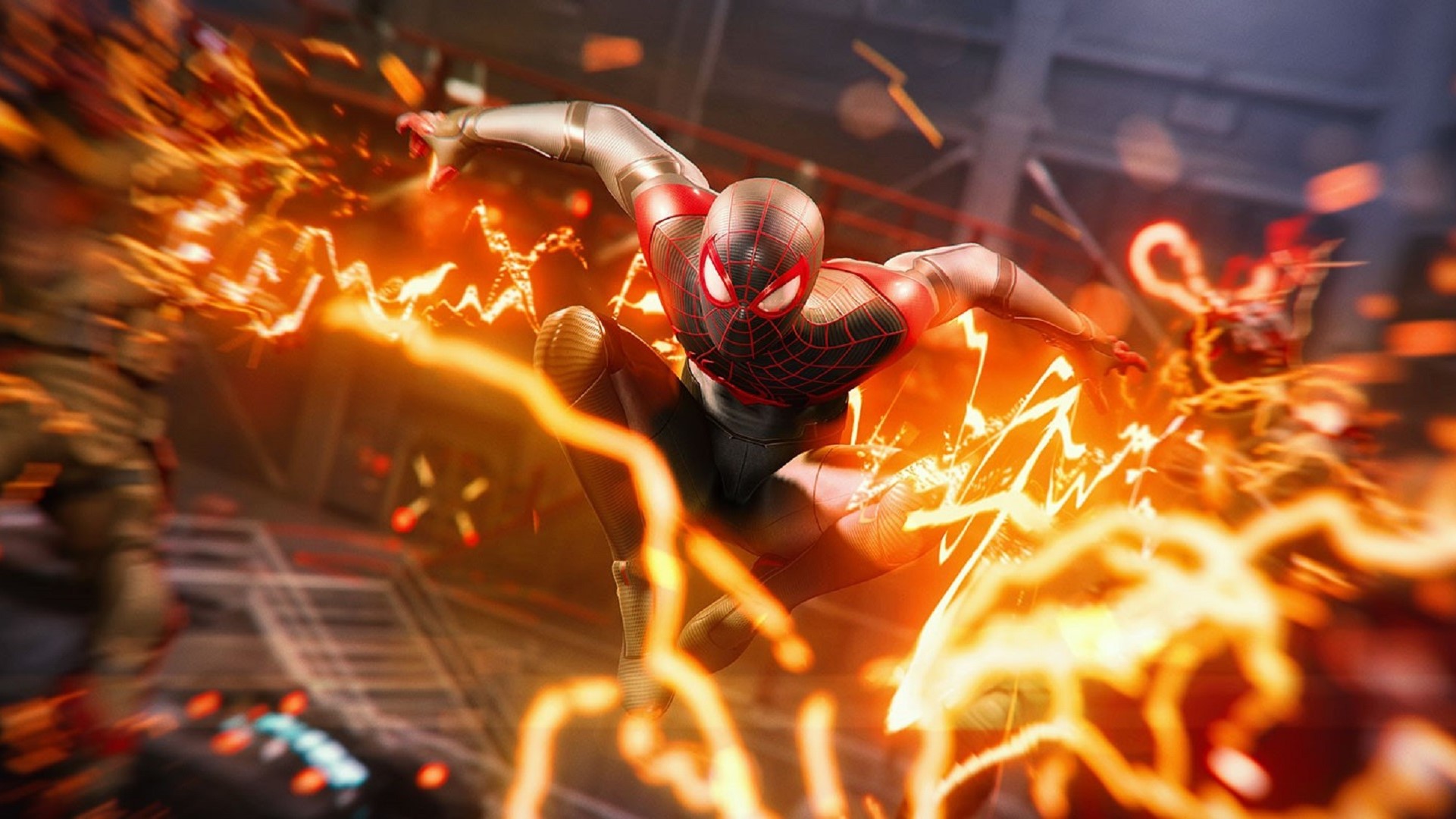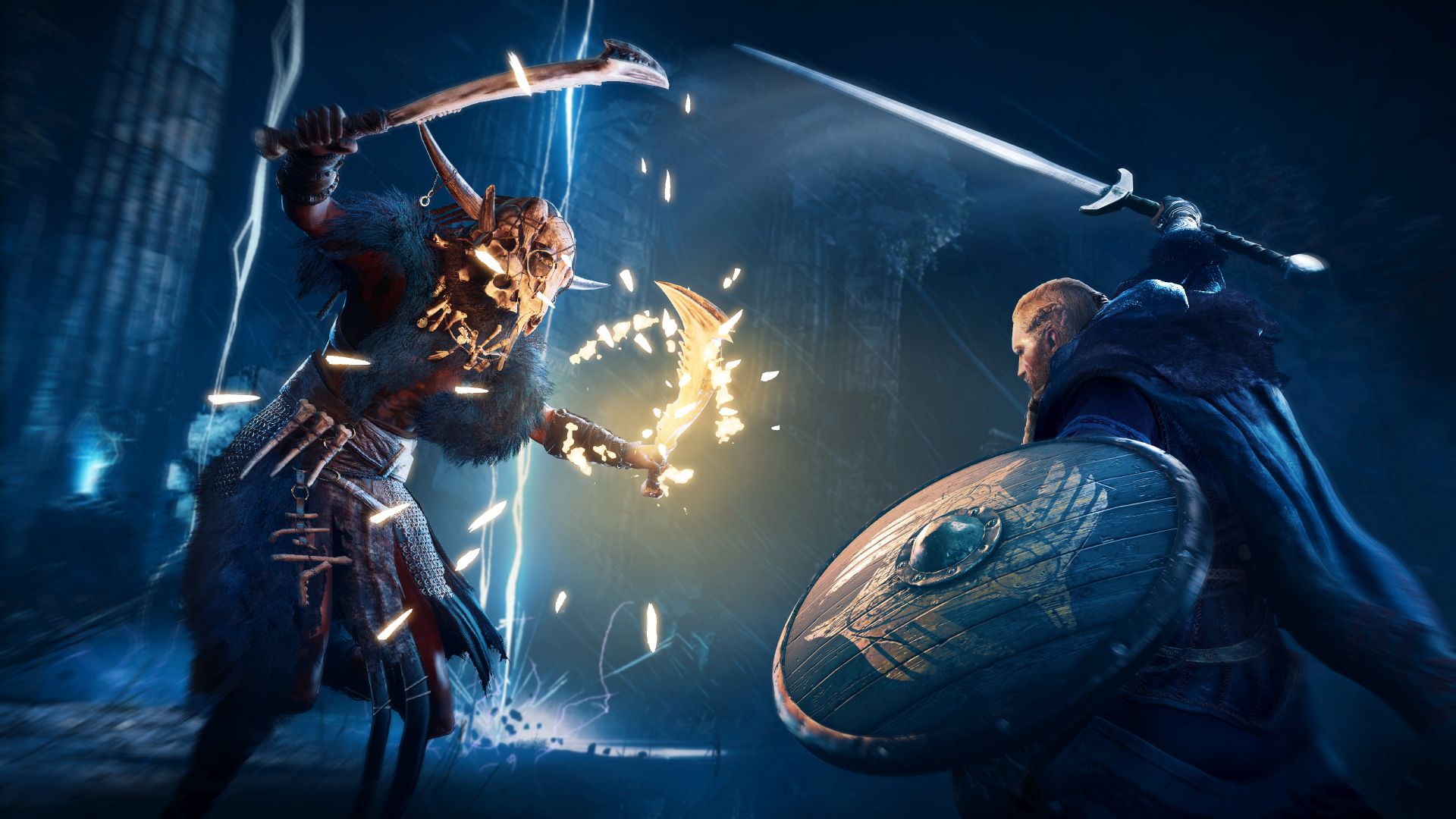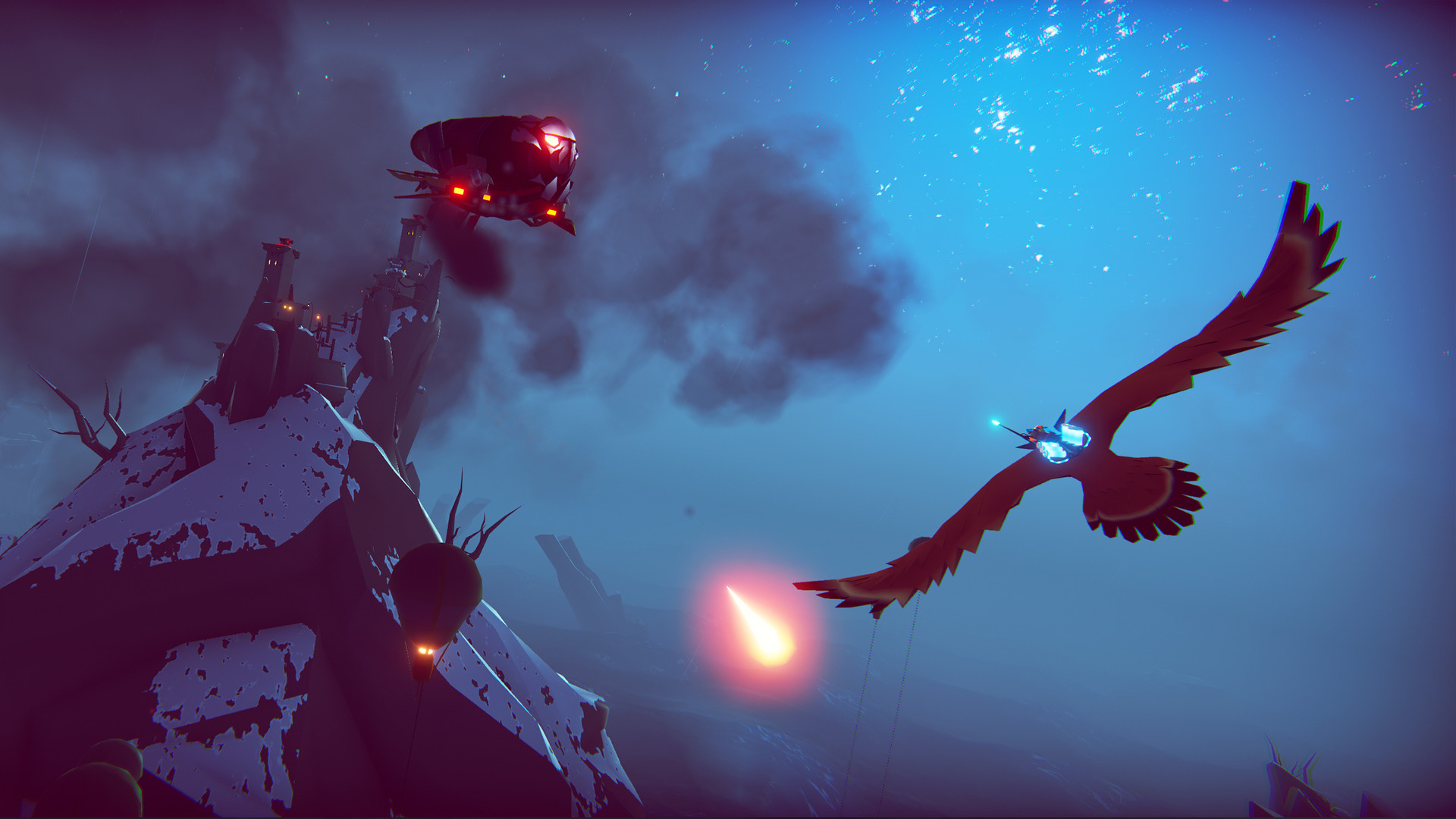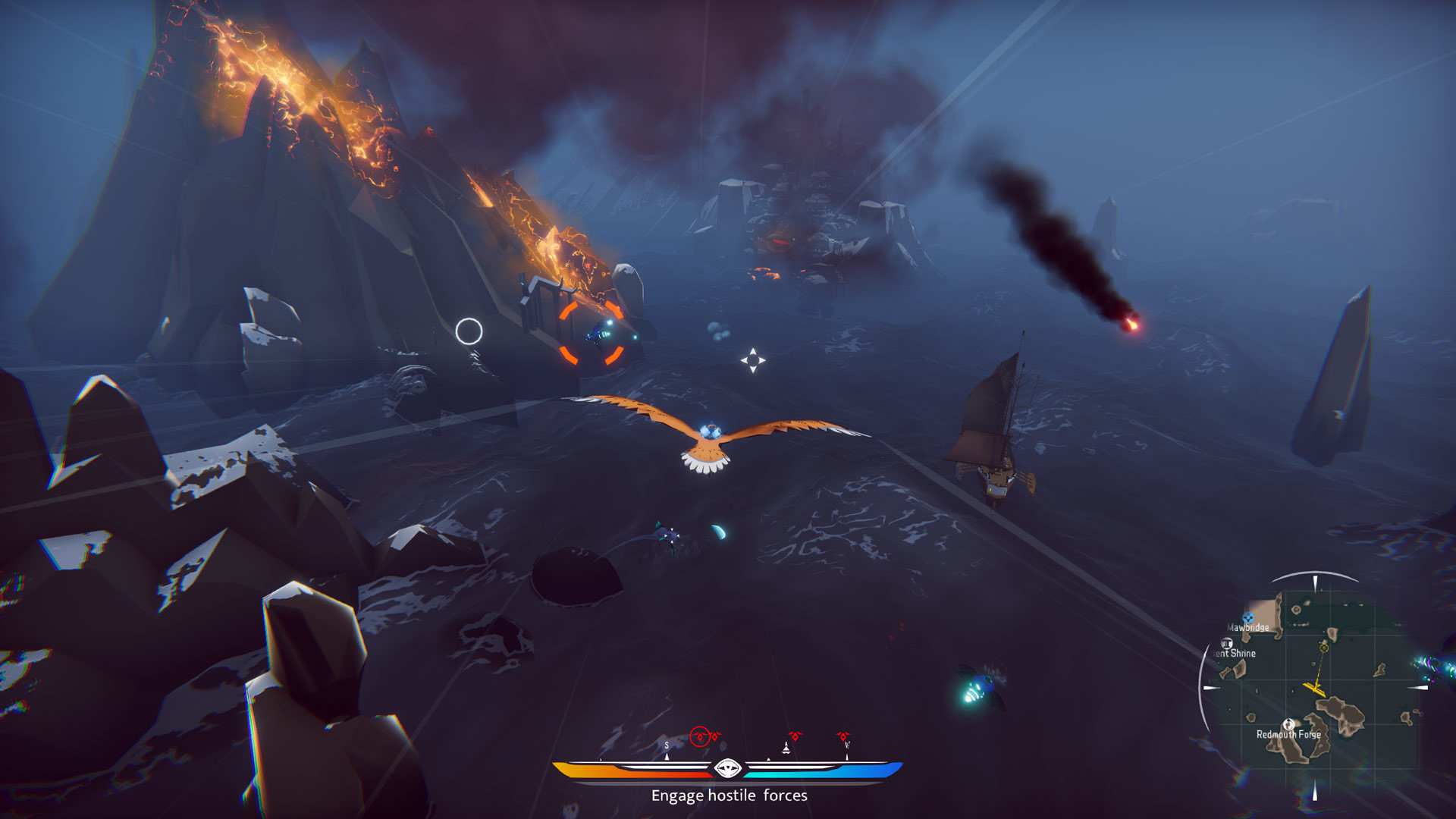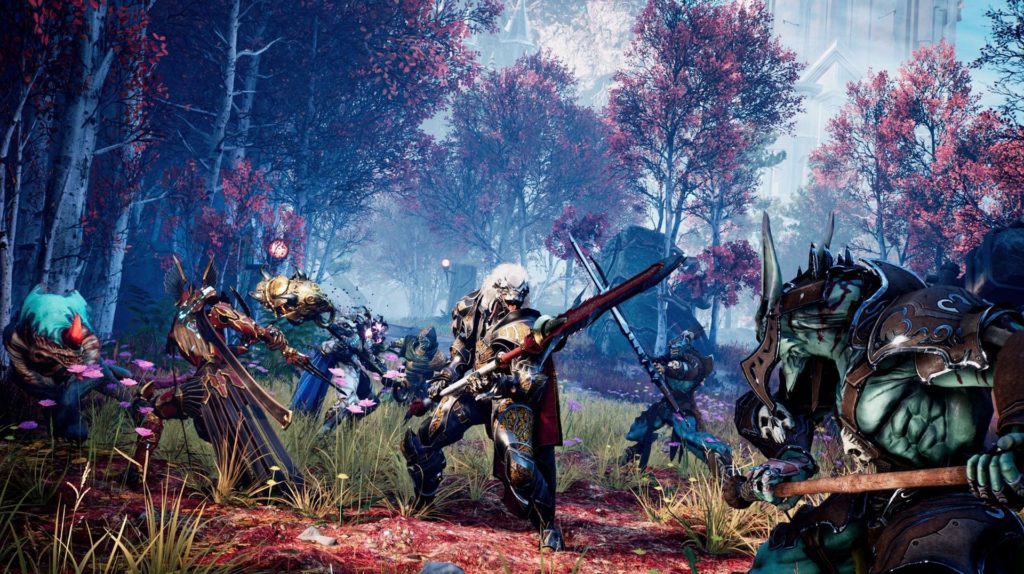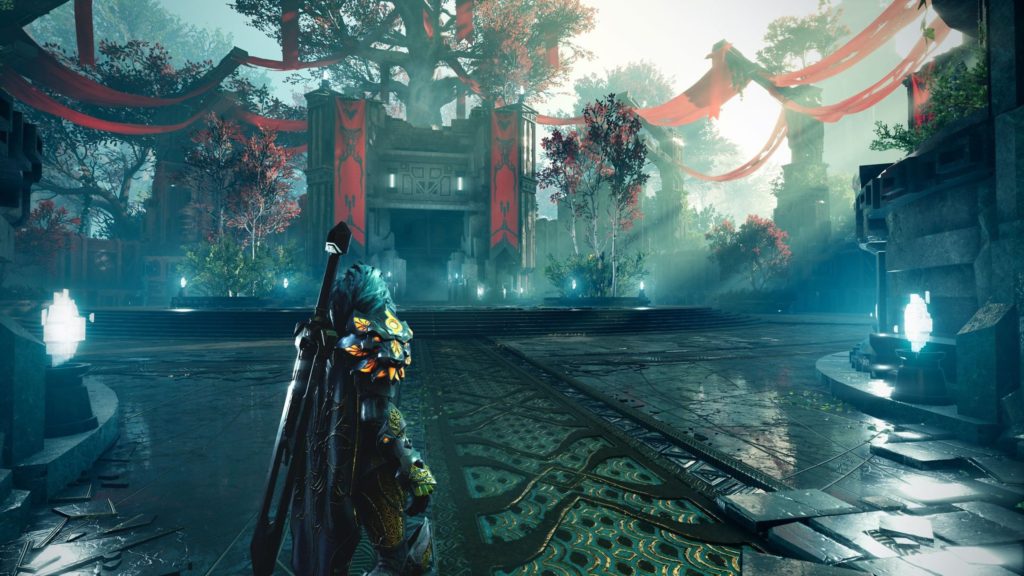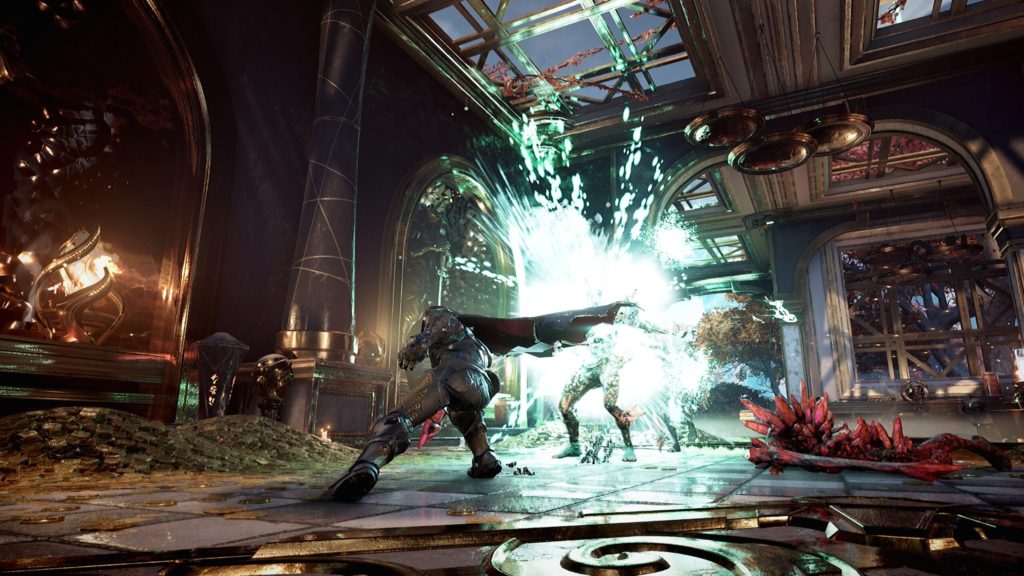Demon's Souls Remake Has a Mysterious New Hidden Door That Wasn't in the Original
Souls fans always welcome mysteries and secrets with open arms, and though Bluepoint Games' Demon's Souls remake for the PS5 is a very faithful recreation of the original PS3 game, it seems it's thrown in some secrets of its own as well.
As spotted by Twitter user @VaatiVidya, there's a mysterious new locked door in the remake that wasn't in the original game. This door can be found in the Tower Knight Archstone, in World Level 1-3 within cramped corridors behind an illusory wall. Interacting with the door prompts a message that says, "It appears to be locked."
While we don't yet know what exactly is behind this new locked door, as discovered by users on Reddit thanks to the wonders of the game's Photo Mode, it seems the door leads to a balcony where you can find an item on a dead soldier.
Demon's Souls is out now for PS5. While our review isn't ready just yet, in our technical analysis of the game, we called it "a massive leap in fidelity over the original" and "an impressive way to kick off next gen." You can read our full analysis through here.
If you're about to get started with the game with little prior Souls experience, you can also check out our beginners guide through here.
There's a mysterious new door in the Demon's Souls Remake, and no one knows how to open it
https://t.co/TdpHLuIRsR pic.twitter.com/MwYjcNy7ed
— Vaati (@VaatiVidya) November 14, 2020
Resident Evil Village and Tales of Arise Rank High in Famitsu Most Wanted Charts
Famitsu's charts for the most highly anticipated upcoming games (as decided by votes from their readers) are in, and a number of heavy hitters feature in the top 10. Tales of Arise, which has been at or close to the top of these charts for some while now, is in pole position, and has a lead of over a hundred votes over the game placed second, Cyberpunk 2077.
The upcoming Nintendo Switch exclusive Monster Hunter Rise trails not far behind in third place, while Capcom's upcoming Resident Evil Village has taken the fourth spot. Behind it (with a pretty small gap) is the sequel to The Legend of Zelda: Breath of the Wild, which itself has a pretty narrow lead over the game placed sixth, Final Fantasy 16.
The Breath of the Wild sequel isn't the only Zelda game in the charts. It's prequel, Hyrule Warriors: Age of Calamity sits in seventh place with a comfortable lead over Switch exclusive Shin Megami Tensei 5. Fellow upcoming Switch exclusives Bayonetta 3 and Bravely Default 2 round out the top 10.
You can check out the full top 10 below. All votes were cast by Famitsu readers between October 22 and October 28.
1. [PS4] Tales of Arise – 657 votes
2. [PS4] Cyberpunk 2077 – 549 votes
3. [NSW] Monster Hunter Rise – 511 votes
4. [PS5] Resident Evil Village – 416 votes
5. [NSW] The Legend of Zelda: Breath of the Wild 2 – 403 votes
6. [PS5] Final Fantasy 16 – 400 votes
7. [NSW] Hyrule Warriors: Age of Calamity – 382 votes
8. [NSW] Shin Megami Tensei 5 – 347 votes
9. [NSW] Bayonetta 3 – 313 votes
10. [NSW] Bravely Default 2 – 300 votes
[Via Nintendo Everything]
Xbox Series S Doesn't Hold Back Next-Gen, It Advances It – Microsoft
Microsoft's dual-console approach to the new generation of consoles has been a point of discussion for many ever since the Xbox Series S was initially revealed. The console has its fair share of detractors and supporters, with many pointing out that its cheap entry point is quite an alluring factor, while others have talked about how its underpowered hardware (especially in terms of RAM and GPU) could hold back next-gen development, especially for multiplatform developers (or Microsoft's first parties, for that matter).
However, according to Xbox system architect Andrew Goossen, that's not going to be the case. Speaking with Digital Foundry, Goossen pointed out that from the Xbox Velocity Architecture to support for ray tracing to a much more powerful CPU, the Xbox Series S boasts of some of the most crucial next-gen features, and that as such, thanks to its lower price, it's not going to hold back next-gen- and will, instead, even advance it.
"I've read a lot of question on the internet, like, why isn't Microsoft going to continue Xbox One X as the low-end machine," Goossen said. "Well, one thing is that it would last a long time through the generation and we felt that the new generation is defined by aspects such as the Xbox Velocity Architecture, and graphics features such as variable rate shading and ray tracing and the 4x processing performance boost on the CPU. And so we wanted to make sure that there was an entry level at the right price-point so that we could really advance the generation rather than hold it back. I've heard that Series S is going to hold back the next generation but I actually see Series S advancing it because by doing Series S we'll have more games written to the characteristics of the next generation."
Goossen went on to talk about how the Xbox Series S is cheaper than the Xbox One X, in spite of having " all the other features that define the new generation." Given that, for Goossen, making the Xbox Series S "was an easy decision."
"The other ironic thing is that we did look at Xbox One X and we couldn't get it down to the price-point we wanted to get, so I look at Xbox Series S and it's cheaper than Xbox One X, it would have all of these next-gen features and then in terms of graphics performance, well you guys know this, but the per-cycle improvements with the new RDNA 2 architecture are like a 25 per cent improvement," he said. "If we just do the back of the envelope math right now, 4TF brings you up to 5TF just according to that factor.
"And some of the data we're seeing with our content is suggesting that it's even better, and then when you think about other features of the new architecture that we've added like variable rate shading and FP16, you know, I think that could get us the additional 20 per cent to pretty much equal the performance for new games… and it's cheaper and you get all the other features that define the new generation. And so for me, it was an easy decision – let's go do this."
The Xbox Series S and Xbox Series X are globally out now, costing $299 and $499 respectively.
PS5 DualSense Support Added to Steam
It's been a while since we last saw a new controller getting as much widespread and overwhelming praise as the PS5's new DualSense has been getting, with the controller's haptic feedback and adaptive triggers garnering particular attention from one and all. How well these features stand the test of time will depend on how well developers implement them, but for now, the controller's got off to a great start.
If you have the hankering to stick with the DualSense even when you're playing games on PC, you can now do that. As revealed in new patch notes for the Steam client published by Valve, support for the DualSense has now been added to Steam.
There's a catch though- it seems some features aren't supported just yet. These include gyroscopic controls, the controller's track pad, and most notably, its haptic feedback. How soon it'll be before they're added in remains to be seen, but it should be interesting to see, once again, how developers choose to apply them in games going forward.
Kena: Bridge of Spirits May Have Been Delayed Into Q4 2021
Kena: Bridge of Spirits has looked like one of the more interesting upcoming PS5 games ever since it was revealed, and many have been following the indie-developed action-adventure title raptly. Originally scheduled as a PS5 launch title, the game got delayed not too long ago into Q1 2021. However, it's possible that it may have been delayed past that as well.
Over on the official PS5 webpage, Kena: Bridge of Spirits is one among several games listed under upcoming PlayStation consoles exclusives, but curiously enough, its release date is mentioned as Q4 2021, which would be several months after its currently announced Q1 launch date. You can take a look at a screengrab below.
It is entirely possible that this is just a typo, since no communication about a delay has come from developer Ember Lab, but if you're looking forward to the game, you should be prepared for the possibility of a delay regardless.
Whenever it launches, Kena: Bridge of Spirits will release for PS5, PS4, and PC, and will support free next-gen upgrades on PlayStation.
Call of Duty: Warzone Supports 120 FPS on Xbox Series X, But Not on PS5
It seems Infinity Ward have sneakily added in 120 FPS support to the free-to-play battle royale shooter Call of Duty: Warzone on Xbox Series X, without much fanfare. As Digital Foundry points out, the game targets 120 FPS on the console, and generally stays in the 100-120 frames per second range.
What's interesting, however, is that the same update hasn't been applied to the game on the PS5, where the shooter hits a maximum of 60 FPS even in performance mode. That's probably down to how the PS5 handles backward compatibility. Since Warzone is technically a PS4 game, Infinity Ward would most likely have to develop a native PS5 port of the game to add 120 FPS support.
This isn't the first game that's had this issue. Rocket League will support 120 FPS on Xbox Series X/S, but not on PS5, with the developers stating that the console's backward compatibility toolset is to blame. Meanwhile, Star Wars; Squadrons, too, has similar disparities across PlayStation and Xbox.
Of course, Call of Duty: Black Ops Cold War, which is out now, does support 120 FPS across all next-gen consoles. Warzone will be integrated with Black Ops Cold War next month.
Marvel's Spider-Man: Miles Morales Guide – All Gadget Upgrades, Suit Mods and Visor Mods
Gadgets can be your best friends in Marvel's Spider-Man: Miles Morales, allowing you to stun, crowd control and effectively decimate groups of foes. There are four main gadgets in the game – Web-Shooters, Holo Drone, Remote Mine and Gravity Well – each with their own upgrades and requirements. Let's take a look at all of them here, starting with the Web-Shooters.
- Increased Capacity I – Increases max capacity by 2. Requires eight Activity Tokens.
- Improved Recharge Time – Ammo refills faster. Requires level 4 and 10 Activity Tokens.
- Web Bomb – Venom Stun an enemy and then web them to the ground or a wall. This will cause the Web Bomb to go off and snare any foes close enough. Requires level 6, 12 Activity Tokens and one Tech Part.
- Increased Capacity II – Increases max capacity by 2. Unlocked in New Game+ at level 21. Requires 16 Activity Tokens and two Tech Parts.
Now, let's look at the Remote Mine and its upgrades.
- Live Wire – Remote Mine will knock out four enemies instead of three when attached to a fuse box. Requires level 10 and eight Activity Tokens.
- Increased Capacity – Increases max ammo capacity by 1. Requires level 11 and 10 Activity Tokens.
- Raw Energy – Remote Mine damage increased. Requires level 12, 12 Activity Tokens and one Tech Part.
- Venom Recharge – After a mine explodes, stand in the explosion's area to gain Venom Power. Unlocked in New Game+ at level 22. Requires16 Activity Tokens and two Tech Parts.
Next, let's look at all the upgrades for the Holo Drone.
- Tough Drone – Damage dealt by the drone is increased. Requires level 7 and eight Activity Tokens.
- Increased Capacity – Max ammo capacity by 1. Requires level 8 and 10 Activity Tokens.
- Increased Duration – Increases the duration of Holo Drone. Requires level 9, 12 Activity Tokens and 1 Tech Part.
- Fatal Exception – When deactivated, the Holo Drone will explode and knock back enemies. Unlocked in New Game+ at level 25. Requires 16 Activity Tokens and two Tech Parts.
Finally, let's look at the Gravity Well, which is unlocked at level 7 and requires 10 Activity Tokens and one Tech Part.
- Increased Capacity – Increases max capacity by 1. Requires level 8 and eight Activity Tokens.
- Gravity Disarm – Affected enemies are disarmed. Requires level 10 and 10 Activity Tokens.
- Gravity Boost – Gravity Well can now attract large foes. Requires level 13, 12 Activity Tokens and one Tech Part.
- Gravity Reach – Increased area of effect. Unlocked in New Game+ at level 24. Requires 16 Activity Tokens and two Tech Parts.
All Visor and Suit Mods
While all of the different mods available in suits were covered here, it's worth going over everything to see your options. Miles starts with one slot each for suit and visor mods with an additional one unlocked for both at level 8 and 10 respectively. Let's take a look at the various suit mods first.
- Unbreakable – Melee attack damage received is reduced by 25 percent. Requires three Activity Tokens.
- Untouchable – Deal 50 percent more damage for five seconds after executing a Perfect Dodge. Requires eight Activity Tokens.
- Induction Mesh – Melee attack damage received is reduced by 25 percent. Requires level 5, 10 Activity Tokens and one Tech Part.
- Venom Momentum – Venom Stun is applied to foes with every sixth hit in a combo. Requires level 10, 12 Activity Tokens and two Tech Parts.
- Hidden Fury – Bonus camouflage time granted with each melee attack hit. Requires level 10, 10 Activity Tokens and two Tech Parts.
- Deep Pockets – All gadget ammo increased by 1. Requires level 10, 14 Activity Tokens and two Tech Parts.
- Zap Slap – When Underground weapons are shattered, a concussive force is created. Unlocked with the Classic Suit.
- Power Pitcher – Thrown objects deal more damage. Unlocked with the Homemade Suit.
- Venom Suppression Resistance – Roxxon Venom Suppression time is reduced; camouflage can be activated to remove bolas instantly. Unlocked with the Miles Morales 2099 Suit.
- Steady Focus – When standing still, rate of camouflage drain is reduced. Unlocked with The End Suit.
- Stronger Webs – Enemies remain webbed for longer periods of time. Unlocked with the Animated Suit.
- Power Transfer – Gain Venom Power by turning off camouflage early. Scales based on the amount of unused camouflage energy. Unlocked with the Spider-Transfer Suit.
- Vibe the Verse – Causes Miles' animations to mimic his character from Spider-Man: Into the Spider-Verse. Unlocked with, no surprises here, the Into the Spider-Verse Suit.
- Venom Shield – Unlocked in New Game+ at level 21. Requires 18 Activity Tokens and three Tech Parts. Creates a Venom Shield for five seconds which negates all damage and Venom Stuns any melee attacking foes. Consumes a full Venom Power upon activation.
Next up are the different visor mods that can be equipped.
- Optic Triangulation – Mark enemies through walls when scanning. Enemies will remain marked while in stealth mode. Requires eight Activity Tokens.
- Perfect Sight – Perfect Dodge window is increased. Requires level 5, 14 Activity Tokens and two Tech Parts.
- An Eye for Supplies – Gadget ammo drop rate increased. Requires level 5, 10 Activity Tokens and two Tech Parts.
- Eyes on Target – When scanning, lines will appear on different enemies, indicating others that can see them. Perfect for knowing the best time to takedown an enemy without raising an alarm. Requires level 10 and 10 Activity Tokens.
- Residual Venom – After executing a Venom Attack, any energy left behind can be absorbed to gain Venom Power. Requires level 10 and 11 Activity Tokens.
- Eyes in the Back of My Head – In stealth encounters, camouflage is automatically activated before enemies detect you. Requires level 10, 14 Activity Tokens and three Tech Parts.
- Trick Master – Air Tricks gain bonus Venom Power. Unlocked with the Brooklyn Visions Academy Suit.
- Untrackable – Ranged attack damage received reduced by 25 percent. Unlocked with the T.R.A.C.K. Suit.
- Ghost Strike – Web-strike takedowns while camouflaged are completely silent. Unlocked with the Crimson Cowl Suit.
- Reclaimer – After performing a melee stealth takedown on an enemy, one gadget ammo is restored. Unlocked with the Purple Reign Suit.
- Venom Overclock – As health drops, Venom Power generation is increased. Unlocked with the S.T.R.I.K.E. Suit.
- Bam! Pow! Wham! – Adds comic book-style effects to combat. Unlocked with the Into the Spider-Verse Suit.
- Threat Sensors – Slows time briefly after performing a Perfect Dodge. Available in New Game+ at level 23. Requires 18 Activity Tokens and two Tech Parts.
Remember that Activity Tokens can be gained from completing optional objectives, crimes with red icons (as seen in the app), random crimes that appear nearby and side-missions. Tech Parts can be found in Underground Caches, located in hideouts for both Roxxon and the Underground.
Assassin's Creed Valhalla Guide – How to Farm Silver, and All Weapon and Gear Locations
Silver is your main currency in Assassin's Creed Valhalla. It's used to purchase materials, especially hard-to-find ones like Nickel Ingots, and is also used to hire raiders for your crew. As such, finding it isn't hard – simply explore camps and other areas, looting as many nearby sources as possible to earn some. Also make sure you keep an eye on Trinkets since they can be sold for a decent amount.
Otherwise, you'll want to embark on raids – these will net various treasures and slain foes can also be looted for Silver. In town, there are Flytings and Drinking Contests that you can bet on which provide a nice amount of Silver with each win.
Recommended Starting Weapons and All Gear Locations
Despite having a loot system, you'll be surprised at how pared down Valhalla is compared to Assassin's Creed Odyssey. You'll receive Varin's Axe early in the game and it's worth upgrading for the first several hours. Pair this with the Iron-Star Flail which can be found north of Kjotve's Fortress in Rygjafylke. Those who prefer a more defensive option should opt for a shield.
Other useful weapons you'll come across include Fafnir's Fang, a spear gained from defeating Erik Loyalskull. It's very useful for poking at range and hitting multiple enemies at once. Travel north from Fornburg to find it in a cave. Let's take a look at other weapons and gear, at least those discovered up till Sciropescire. First, there's the Rygjafylke region:
- Yngling Seax Weapon – Raven Gear Dagger. Located in Stavanger by dropping through a hole in the house's roof.
- Fine Hammer – Raven Gear War Hammer. Head to the Marauder's Den and look for the hanging platform in a tree. Climb the house opposite to it and jump across.
- Bone Biter – Wolf Gear Fine Dane Axe. On the region map, look for a small island called Ikke en Oy. The weapon is located in the house on this island.
- Recurve Bow – Raven Gear Fine Predator Bow. Located in an underground room found by traveling north-west from Haervik Shipyard.
- Iron-Star – Bear Gear Fine Flail. As noted above, it's located north of Kjotve's Fortress. Look for a house and you'll find it inside.
Next up, let's look at all the gear from the Ledecestrescire region.
- Skadi's Wrath – Bear Gear Fine Light Bow. Located in the church south of Ledecestrescire.
- Hidden Ones' Gloves – Raven Gear Superior Bracers. Head to the Ratae Bureau – you'll see some weights hanging from the ceiling. Shoot the hook and the weights will break through the floor to the cellar. Venture to the cellar to find the gloves.
- Hrafn Guard – Raven Gear Fine Light Shield. Travel north-east from Alcestre Monastery until you happen on a temple. Climb from the back and shoot the door bolt to open the entrance. You'll have to fight some enemies within so fefeat them and loot the Hrafn Guard from the chest.
- Huntsman Helm – Wolf Gear Superior Helmet. Travel north-west from Tonnastadir until you find a longhouse. Acquire a key from there and use it to unlock the secret passage where the helm awaits.
- Huntsman Cloak – Wolf Gear Superior Cloak. Head to Templebrough Fort's north-west part. Look for a hanging block and shoot it. This will crash through the ground – jump into the hole where the cloak is located.
- Fyrd Spear – Raven Gear Fine Spear. Head to Offchurch's crypt and before fighting the Skirmisher, look for a destructible wall on the left. Destroy it, swim into the water and eventually you'll find a chest with the spear.
Next, let's look at all of the gear and weapons in Grantebridgescire.
- Huntsman Vambraces – Wolf Gear Superior Braces. During the World Event "Skal to Your Wealth" (which is north-west of Besumcen), you'll end up in a pit. The braces are found in the chest.
- Kite Shield – Bear Gear Fine Heavy Shield. Go west from the Medleburne Grantebridgescire region. You'll eventually discover a hut guarded by a number of tough enemies. Take them down and then head inside to claim the Kite Shield.
- Huntsman Armor – Wolf Gear Superior Torso. Remember where you picked up Skadi's Wrath? The Huntsman Armor is in a building next to it.
- Housecarl's Axe – Wolf Gear Superior Bearded Axe. After completing the "Skal to Your Wealth" World Event, head west of Middeltun. Fight the Brandisher and then use the key from the World Event to obtain the Housecarl's Axe.
- Thor's Pants – Travel north of the Isle of Ely Monastery. There will be a boss at this location – defeat it and the pants are yours.
- Huntsman Breeches – Wolf Gear Superior Pants. Venture to the Soham Hideout and look for a hut to find the breeches.
Now, let's look at the gear and weapons you can find in East Anglia.
- Magister's Cloak – Raven Gear Superior Cloak. Venture to Serpent's Landing and look for a red tent. Pick up the key from the table outside and then search around the western part to find the cloak.
- Thor's Helmet – This one's a bit tricky. First, you need to defeat the Daughters of Lerion – Regan, Cordelia and Goneril – and obtain their daggers. Cordelia and Regan are in East Anglia while Goneril is in Grantebridgescire. Once this is done, travel east of King's Bury until you find a secret entrance that leads underground. There will be three statues to place the daggers in. Do this and Thor's Helmet is yours.
- Magister's Mask – Raven Gear Superior Helm. During the raid in King's Bury, open the main door of the church to find the mask.
- Plank and Buckler – Bear Gear Superior Heavy Shield. Search the caves in East Anglia until you find a guard. Take the key next to him and then venture forth until you find a destructible wall. Throw a torch through the gap to blow it up and step inside to collect the shield.
- Carolingian Longsword – Bear Gear Superior Great Sword. Look for a tent in the Forest Hideout – the sword will be inside.
Next, let's look at gear in the Oxenefordscire region.
- Magister's Pants – Travel north of Oxeneforda until you find a church. Defeat the guards and then shoot the window in the middle to climb inside. You'll find a big stone that houses a key. Pick it up (the key, not the stone) and then climb out of the window, heading upwards. The Magister's Pants will be inside a chest above.
- Magister's Tunic – Located north-east of Oxeneforda in a garrison. Through the villa, use the fire pots to enter and obtain the tunic.
- Brigandine Cape – Travel north-west of Quatford and look for a destructible wall. The cape will be inside it.
Finally, let's look at gear that can be found in the Sciropescire region.
- Brigandine Helm – Located to the east of the Hill Gate Remnants. Look for a chest with Odin Vision.
The Falconeer Review – Do A Barrell Roll
The thing that struck me the most when I was playing The Falconeer wasn't its striking visuals – which, even on an Xbox One S, stand out as being remarkably pretty, buoyed as they are by a very strong art style – nor was it the game's sheer expanse. It wasn't the compelling lore and backstory for this imaginative world that the game was doling out in bits and pieces, nor was it the actual aerial dogfight action (which we'll get to in a bit). The thing that stood out to me was that all of it – the graphics, the combat, the world and its backstory, everything except for the audio, really – was done by one person. This rather imaginative and expansive aerial dogfight game is the brainchild of one person.
That really does put a lot of things in perspective. The Falconeer has quite a few issues, some small, others rather obstructive, but in the end, that all of this was the work of one person really helps appreciate the game's strengths that much more, while explaining why some of its flaws are the way they are. Games far less impressive have come out of development teams far bigger and better equipped with resources – a game by one person having a few misses can hardly be held against it as much, given that.
"Missions are preceded by an overview of the map of their setting, with characters explaining the history, politics, economy, or whatever other factor will end up being relevant in your coming mission, in voiceovers."
The Falconeer is an aerial combat game. These used to be all the rage not all that long ago, although the genre isn't quite as popular now. Nonetheless, even if it were, The Falconeer would stand out. One part of this comes down to its incredibly imaginative setting, a vast ocean world with tiny dotted islands controlled by warring factions, and all relying on the eponymous falconers to help guard their turf a bit. These falconeers are pilots of some pretty oversized birds, armed with weaponry enough to be able to take on almost anything the sea can throw at them – though they are pilots riding on the back of a bird, which means hits damage you quite a bit too.
The Falconeer is clearly very proud of its setting. Missions are preceded by an overview of the map of their setting, with characters explaining the history, politics, economy, or whatever other factor will end up being relevant in your coming mission, in voiceovers. Each place ends up being defined well, and though you never really see much of them, you start to get a feel for these individual cultures in the world, whether it be an imperial center that can barely keep territories under its rule, owing to being impervious in their own ivory tower, or a fringe trading town, which has to deal with the dual concerns of catching the notice of the empire, and having to fend off against pirates and smugglers. It's an extremely rich setting, and The Falconeer uses it to paint a picture of a world perennially in conflict, with these five factions barely and tenuously hanging on and surviving.
"Unlike almost every other game, no 3D model in this game uses texture mapping of any sort, which means that the objects you see gain their form and look entirely from the in-game lighting. The look ends up being rather unusual, but really immersive and bold, immersing you in the rich world, and adding more substance to it along the way to boot."
It helps that the setting is brought to life by some rather striking visuals. I spoke about the strong art earlier, but what also helps the graphics stand out is the rather unusual rendering techniques that solo developer Tomas Sala has leveraged. Unlike almost every other game, no 3D model in this game uses texture mapping of any sort, which means that the objects you see gain their form and look entirely from the in-game lighting. The look ends up being rather unusual, but really immersive and bold, immersing you in the rich world, and adding more substance to it along the way to boot.
Traversing this world on birdback can feel great – once you finally have a hang for the controls. They're not really difficult to master as far as flying is concerned, and you get a fair degree of customization to further alter them to suit your needs. Everything, from slow dives to accelerating, to flapping in place, to barrel rolls, is easy to pull off, and a sense of zen-like peace and nirvana can almost set in on you when you're just flying around the world, thanks to the rhythm of the controls, and the beauty of the surrounding world. The controls, when flying, feel elegant.
You'll notice I have qualified my praise for the controls by specifying it extends only to the flying controls, and there's a reason for that. For all the elegance that you can experience when flying around, combat feels clumsy and hectic, and not in a good way. Your aiming reticle is mapped to the same analog stick as your turning and movement – not an issue in and of itself. However, the reticle moves extremely slowly relative to your actual movement and turning – extremely slowly.
This becomes an issue, creating a disconnect between your quick and rapid turns and movements, and the extremely slow aiming, meaning that trying to actually fire on target becomes an annoying game of chasing the target across the screen with your slow as molasses reticle in 360 degrees, in an effort to actually land a hit on them. The Falconeer actually tries to make some concessions – you have a target lock on button, for example, as well as a button to reorient yourself with respect to your target instantly. But this scarcely helps when the aiming reticle is still so slow, and when there are so many enemies swarming you from all sides and directions, and when hits can take out a good chunk of your health.
"I can imagine this combat actually feeling great on a PC, where the accuracy and movement of a mouse is far beyond the sluggishness of the analog stick, but at least on console, I can say that the combat was my least favorite part of the whole experience – which is a bit of an issue for a dogfighting game."
Combat is, unfortunately, annoying. I found no way to increase the sensitivity of the aiming reticle in the settings menu (and I tried looking multiple times), which struck me as unfortunate given that The Falconeer otherwise actually tries to accommodate player preferences very well. I can imagine this combat actually feeling great on a PC, where the accuracy and movement of a mouse is far beyond the sluggishness of the analog stick, but at least on console, I can say that the combat was my least favorite part of the whole experience – which is a bit of an issue for a dogfighting game.
I wager this feels better on an Xbox Series X (where the game will run in a blistering 120fps), because, again, that has to help with the reticle movement speed. Unfortunately, on the One S, at least, this meant I was losing battles I had no business losing far too easily, which, because the game does not employ any checkpoints in its missions, meant that I would have to start the whole mission over, from the beginning. No matter how close to the end I was.
These annoyances stand at odds with how peaceful and enjoyable simply exploring the world feels. The world of The Falconeer can look empty, but there's actually a fair bit for you to discover, from locations to lore to an understanding of the geopolitics of the Great Ursee, to even abilities and technology that can aid you in combat. It's a surprisingly rich world, with a lot on offer, and I would argue the world, and simply flying through it on the back of your giant bird, is the best part of the package.
The Falconeer isn't a full-fledged slam dunk, then. However, this brings me back to what I said at the start of this review – in the end, this entire game was made by one person (other than the sound side of things, which is also excellent, incidentally). The flaws become easier to excuse in that context. It also helps that the game is budget prices, meaning there is less pressure on it to live up to justifying the value of the purchase of a full priced game. For the price you pay, The Falconeer has a lot to offer.
It looks gorgeous, its got an intriguing world, and exploring and flying can feel great. The issues with the game's checkpoints and combat unfortunately do drag it down a bit, as does mission design that starts to get repetitive fairly early on – but overall, I walked away from The Falconeer feeling impressed. Xbox players have a fair few good games to choose from at launch, while PC players have no shortage of other (albeit older) flight combat games. But I do hope that Xbox and PC players alike give The Falconeer a good look. It's not a home run, but the things it does well, it does really well – and sometimes, that can be enough.
This game was reviewed on Xbox One.
Godfall Review – An Empty Suit of Armor
Godfall starts at the end of a war between two brothers. The details of how it started are glossed over. The long and short of it is that the big bad, Macros, wants to become a god. Orin – that's you – wants to stop him. The war ends in a duel atop a tall tower overlooking the ocean. Because there has to be a story, Orin loses. But, like all bad guys with aspirations of absolute power, Macros makes a crucial mistake: instead of killing Orin then and there, he smashes him through the stone into the sea.
Naturally, Orin survives. You take control of him sometime later. Macros is on his way to godhood, and Orin has to take him down. Hence, Godfall. It's not an imaginative premise, but Godfall isn't an imaginative game. As I hacked and slashed my way through the game's too-long tutorial, I marveled at how derivative Godfall was. How soulless it felt. How every second I spent playing it reminded me of something else.
" If you've played God of War, you'll know how to do basically everything in Godfall because they play almost exactly the same."
The easiest thing to compare Godfall to is Sony Santa Monica's 2018 reboot/sequel to the God of War series. If you've played God of War, you'll know how to do basically everything in Godfall because they play almost exactly the same. Godfall just does everything worse. There are light and heavy attacks that can be chained into basic combos. There are skill trees to fill out, which upgrade your character and grant new abilities. Each of your two weapons comes with two special abilities that do extra damage. You can press a button to leap over specially marked obstacles and climb designated ledges. Enemies can be killed by either reducing their health to zero, or building up their stun meter, which allows you to execute them.
You have a retractable shield on your left arm that fans out on command so you can block and parry enemy attacks, except for the red ones, which, as in God of War, must be dodged. Pressing down both thumbsticks activates Archon's Fury, which is this game's version of Spartan Rage. Even the control schemes are almost identical.
Godfall's art is similarly derivative. Its art style could be politely described as generic fantasy. A more specific description would be to day it's combination of the art from WarCraft, Darksiders, and God of War. That's not to say that Godfall doesn't look good – it's truly a gorgeous game – but you don't have to squint hard to see where it's taking its cues from, and absolutely nothing about its world or characters feels original.
"The best idea the game has is Soulshatter, which allows you to stack damage on enemies with light attacks before detonating it with heavy attacks."
It would be an understatement to say Godfall doesn't make a good first impression. It's impossible to care about the plot, because while the game clearly wants to lean into its lore, what's here is so generic, poorly written, and filled with proper nouns that it impossible to follow beyond broad strokes. The same is true of the game's characters. Orin is a cardboard cutout, and the supporting cast isn't any better. Each of them communicates in dialogue that touches on one of the three things that character cares about and nothing else.
But, like all games of this type, you're not here for the story. You're here to play it. And here, Godfall is fine. Not good, not bad. Fine. After you unlock some skills, Godfall's combat begins to open up. You can access to moves that require you to time specific attacks, opening up your combo possibilities, special attacks that stun or do area damage, and the like, and it makes Godfall's take on the light/heavy paradigm that seems to dominate every modern action game enjoyable, if not particularly original.
The best idea the game has is Soulshatter, which allows you to stack damage on enemies with light attacks before detonating it with heavy attacks. The game also incentivizes risk by giving enemies powerful attacks that glow purple. These attacks hit hard but, if parried, leave the enemy stunned, allowing you to pour on the damage. Both of these systems incentivize you to take risks in combat and make the core systems feel more interesting than they'd be otherwise. To Godfall's credit, the combat does improve once you have some new skills to make it interesting. It's never great, but it is good enough to be compelling.
Godfall is the latest take on the loot genre – the developers describe it as a looter slasher – so killing enemies gives you loot, ranging from new weapons to rings and banners that provide stat bonuses. Like in World of WarCraft, all of this is color-coded from uncommon (white) to legendary (orange), and like in Word of WarCraft, the goal is to make your numbers go up until they are the best numbers in all the land. There's a certain amount of personal preference here, especially when it comes to the weapons, which include longsword, great swords, war hammers, dual blades, pole arms and the like. Each weapon type has its own combos, timings, and special moves, so your choice matters. I liked all of the weapon types, but I was partially to longswords, great swords, and war hammers. The former are good all arounders while the latter two deal heavy damage to anyone unlucky enough to be in your way.
"Godfall absolutely bombards you with loot. Most of it is useless and you'll only look at it long enough to scrap into resources you can spend to upgrade the stuff you like, but you'll still spend a lot of time sorting through it."
Finding out what you like is important because Godfall absolutely bombards you with loot. Most of it is useless and you'll only look at it long enough to scrap into resources you can spend to upgrade the stuff you like, but you'll still spend a lot of time sorting through it. Most of the loot comes with secondary stats, or buffs effects like Bleed, which do damage over time, but Godfall is really bad at showing you what these effects look like in game. Mostly enemies change color, but it's not always obvious what the different colors mean, so pure damage is probably your best bet.
Upgrading is done at the Sanctum, which is where you can also spend resources to by new Valorplates. Valorplates are the game's version of armor, but they don't actually seem to have a huge impact on your stats. What does change are your passive stats and the properties of your Archon's Fury. Some summon friends to help you out, while others cause status effects and boost your damage. It's not a huge deal, but it's an extra set of customizations to play with. Interestingly, Orin takes on the appearance and voice associated with the Valorplate he's wearing, so he can be either male or female depending on which one you choose.
When you're not in the Sanctum, you'll be out exploring the different areas. One's a big forest that surrounds several constructs, another one seems to be underwater, and so on. These areas are large and open, which is good, since you'll return to each of them several times to complete the various main and side missions. While I typically dislike backtracking, it largely didn't bother me here… until it came to boss fights. These encounters require you to unlock them by gathering items you collect during certain missions, which can be a bit annoying and ruin the game's pacing. It's irritating to be told that you can go fight a boss only to have to spend the next half hour or so unlocking that boss. The boss fights themselves are a lot of fun (and the game is generous with mid-boss fight checkpoints), but it's a shame that Godfall puts extra steps between you and the fun.
"almost everything about Godfall is aggressively mediocre and incredibly derivative."
The one area of Godfall that deserves unreserved praise is the game's visual design. The aesthetic may be generic fantasy, but the game is gorgeous and runs extremely well. I ran it at 1080p and a largely stable 60 FPS at maximum settings with a RTX 2060 Super and an i5-6600K. The only performance issues I noticed were the odd stutter where the game seemed to skip ahead a few seconds. It was jarring when it happened, but rare enough that it didn't bother me.
Godfall does support three player co-op, which can make even the worst games more fun, but since there doesn't seem to be any matchmaking and friends must be invited directly, I was unable to test it.
Godfall is a difficult game to review. On the one hand, the combat gets pretty good if you give the game time to find its feet. On the other, almost everything about Godfall is so aggressively mediocre and incredibly derivative. It's one thing to have a bad game that tries something new and fails. It's another thing to have a game that doesn't try anything new and seems to revel in its mediocrity. That's the kind of game Godfall is. The combat is solid, but nothing about this game stands out. Its world and characters are boring, the game systems are blatantly lifted from other, better games, and its loot system seems to have no idea what to do but shower you in rewards and hope you like some of them.
Godfall is the kind of game that releases at the beginning of each generation: it looks and sounds good, but there's nothing special about it. The combat can be fun, but the game as a whole is mediocre. If you're looking to hack n' slash your way through a fairly generic fantasy world and grab some loot along the way, then perhaps Godfall's faults won't bother you. But everyone else will see Godfall for what it is: something people buy to pass the time and show off their new graphics card or console and forget about once something better comes along. And like Godfall itself, that's fine – but nothing more.
This game was reviewed on the PC.
